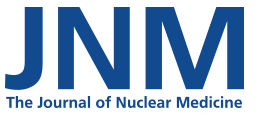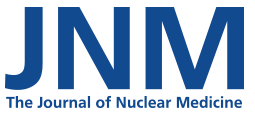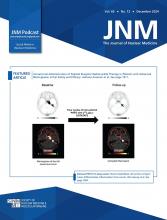Visual Abstract
Abstract
Our rationale was to investigate whether 18F-FDG PET/MRI in addition to (guideline-recommended) conventional staging leads to changes in therapeutic management in patients with newly diagnosed breast cancer and compare the diagnostic accuracy of 18F-FDG PET/MRI with that of conventional staging for determining the Union for International Cancer Control (UICC) stage. Methods: In this prospective, double-center study, 208 women with newly diagnosed, therapy-naïve invasive breast cancer were enrolled in accordance with the inclusion criteria. All patients underwent guideline-recommended conventional staging and whole-body 18F-FDG PET/MRI with a dedicated breast examination. A multidisciplinary tumor board served to determine 2 different therapy recommendations for each patient, one based on conventional staging alone and another based on combined assessment of conventional staging and 18F-FDG PET/MRI examinations. Major changes in therapy recommendations and differences between the conventional staging algorithm and 18F-FDG PET/MRI for determining the correct UICC stage were reported and evaluated. Results: Major changes in therapeutic management based on combined assessment of conventional staging and 18F-FDG PET/MRI were detected in 5 of 208 patients, amounting to changes in therapeutic management in 2.4% (95% CI, 0.78%–5.2%) of the study population. In determining the UICC stage, the guideline-based staging algorithm and 18F-FDG PET/MRI were concordant in 135 of 208 (64.9%; 95% CI, 58%–71.4%) patients. The conventional guideline algorithm correctly determined the UICC stage in 130 of 208 (62.5%; 95% CI, 55.5%–69.1%) patients, and 18F-FDG PET/MRI correctly determined the UICC stage in 170 of 208 (81.9%; 95% CI, 75.8%–86.7%) patients. Conclusion: Despite the diagnostic superiority of 18F-FDG PET/MRI over conventional staging in determining the correct UICC stage, the current (guideline-recommended) conventional staging algorithm is sufficient for adequate therapeutic management of patients with newly diagnosed breast cancer, and 18F-FDG PET/MRI does not have an impact on patient management.
Footnotes
Published online Oct. 10, 2024.
- © 2024 by the Society of Nuclear Medicine and Molecular Imaging.
This article requires a subscription to view the full text. If you have a subscription you may use the login form below to view the article. Access to this article can also be purchased.
SNMMI members
Login to the site using your SNMMI member credentials
Individuals
Login as an individual user








